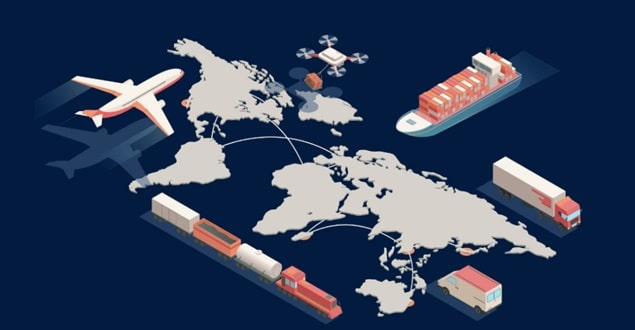In the intricate ecosystem of global commerce, international logistics plays a pivotal role in facilitating the smooth movement of goods across borders. From the bustling ports of Asia to the distribution centers in Europe, the dynamics of international trade are continuously shaped by evolving trends and innovative strategies. This blog will explore the currents of trade winds, exploring the latest trends and strategic approaches driving efficiency and sustainability in international logistics.
Understanding Trade Winds in International Logistics
Historically known for propelling ships across oceans, trade winds metaphorically symbolize the prevailing patterns and forces shaping global trade. In the realm of logistics, these winds represent the interconnected network of transportation, warehousing, and supply chain management that ensure goods reach their destinations efficiently and cost-effectively.
Trends Shaping International Logistics
Digital Transformation: The advent of digital technologies like the Internet of Things (IoT), artificial intelligence (AI), and blockchain is revolutionizing international logistics. From real-time tracking of shipments to predictive analytics for demand forecasting, digitalization enhances visibility and efficiency across the supply chain.
Sustainable Practices: With increasing environmental concerns, sustainability has become a central focus in international logistics. Companies are adopting eco-friendly measures such as alternative fuels, route optimization, and packaging redesign to minimize carbon footprint and promote green logistics.
Resilience and Risk Management: The COVID-19 pandemic highlighted the importance of resilience in supply chains. Companies are diversifying sourcing locations, implementing contingency plans, and leveraging data analytics to mitigate risks and ensure continuity of operations in the face of disruptions.
E-commerce Boom: The surge in online shopping is reshaping logistics strategies, driving demand for faster delivery, last-mile solutions, and efficient returns management. Logistics providers are investing in automated warehouses, drone delivery, and advanced routing algorithms to meet the demands of e-commerce giants and consumers alike.
Strategies for Success in International Logistics
Collaboration and Partnerships: In the interconnected world of logistics, collaboration is key to success. Establishing strategic partnerships with carriers, suppliers, and technology providers enables seamless coordination and enhances operational efficiency. Embracing partial load shipping at Shiply.com allows companies to optimize cargo space utilization and reduce costs in international logistics operations.
Lean and Agile Operations: Embracing lean principles and agile methodologies helps streamline processes, reduce waste, and respond swiftly to changing market dynamics. Flexibility in logistics operations allows companies to adapt to fluctuating demand and optimise resource utilization.
Data-driven Decision Making: Leveraging data analytics and business intelligence tools empowers logistics managers to make informed decisions. By analyzing supply chain data, companies can identify bottlenecks, optimize routes, and improve resource allocation for enhanced efficiency and cost savings.
Continuous Innovation: In the fast-paced world of international logistics, innovation is a competitive advantage. Companies that invest in research and development, experiment with emerging technologies, and embrace a culture of innovation are better positioned to adapt to evolving customer needs and market trends.
Conclusion
As trade winds continue to shape the landscape of international commerce, staying ahead of the curve in logistics requires a proactive approach. By embracing digital transformation, sustainability initiatives, and innovative strategies, companies can navigate the complexities of global supply chains with confidence and resilience. In the ever-changing world of international logistics, those who harness the power of trade winds are poised to sail toward success in the global marketplace.















